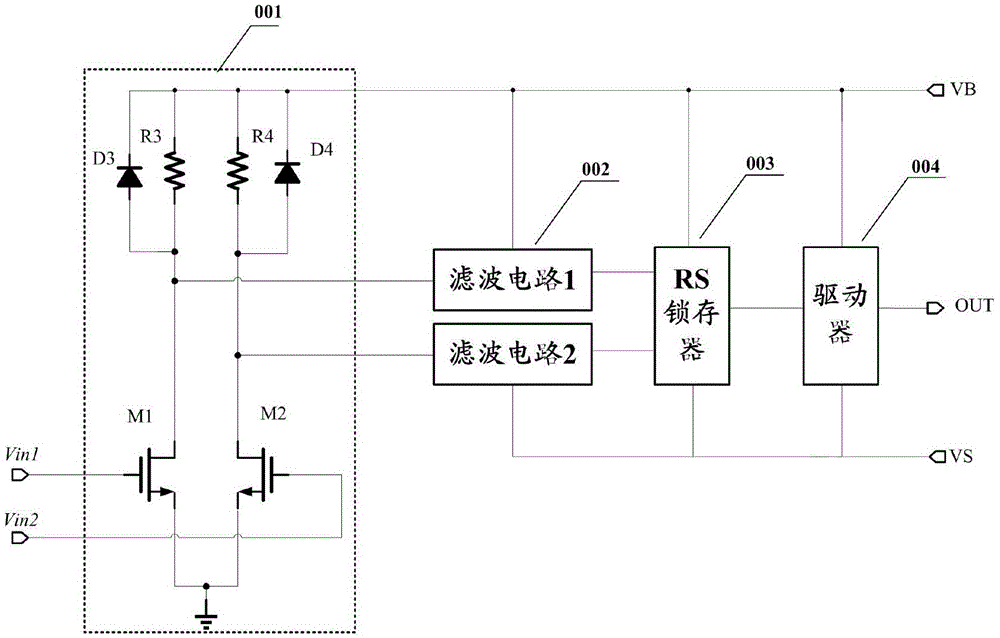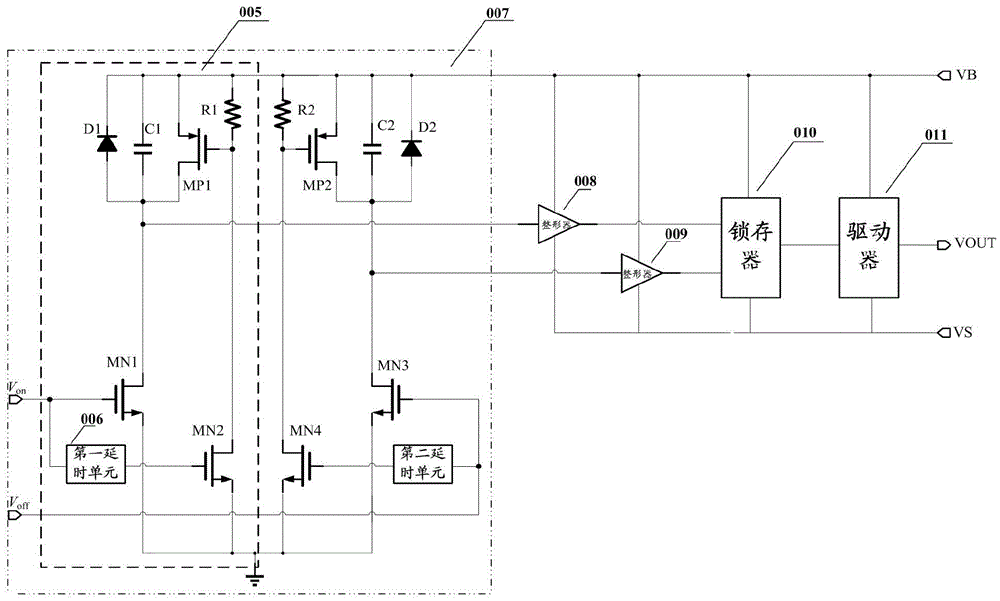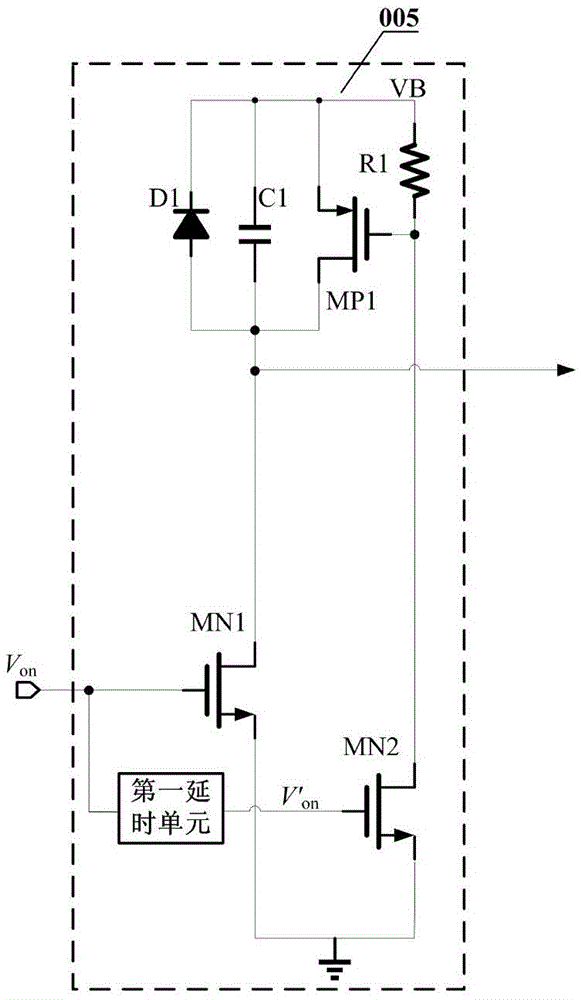A high-voltage side gate drive circuit with anti-noise interference
A gate drive circuit and high-voltage side technology, which is applied in the field of high-voltage power MOS gate drive and high-voltage floating gate drive circuit, can solve problems such as noise interference, and achieve the effects of increasing working ability, reducing power consumption, and shortening the conduction time
- Summary
- Abstract
- Description
- Claims
- Application Information
AI Technical Summary
Problems solved by technology
Method used
Image
Examples
Embodiment Construction
[0026] like figure 1, the traditional high-voltage side gate drive circuit includes a high-voltage level shift circuit 001, a filter circuit 002, an RS latch 003, and a driver 004. The high-voltage level shift circuit converts the input two-way low-voltage pulse signal into a high-voltage pulse signal output. The high-voltage pulse signal enters the RS latch after passing through the filter circuit. The output of the RS latch is connected to the driver, and the driver outputs the OUT drive signal. Control the switch of the external power tube. In order to reduce power consumption and improve the reliability of the circuit, the high-voltage level shift circuit is driven by a dual-channel narrow pulse working mode, and the narrow pulse width is reduced as much as possible under the premise of ensuring that the LDMOS transistor can be driven to reduce power consumption. Among them, the high-voltage level shift circuit is mainly used to convert the low-voltage pulse signal into ...
PUM
 Login to View More
Login to View More Abstract
Description
Claims
Application Information
 Login to View More
Login to View More - R&D
- Intellectual Property
- Life Sciences
- Materials
- Tech Scout
- Unparalleled Data Quality
- Higher Quality Content
- 60% Fewer Hallucinations
Browse by: Latest US Patents, China's latest patents, Technical Efficacy Thesaurus, Application Domain, Technology Topic, Popular Technical Reports.
© 2025 PatSnap. All rights reserved.Legal|Privacy policy|Modern Slavery Act Transparency Statement|Sitemap|About US| Contact US: help@patsnap.com



